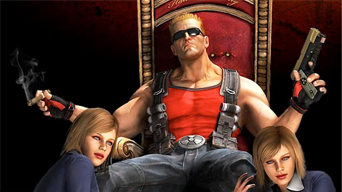Pro Argument -- Page 2
Another aspect of sexism in videogames is the dominance that the male has over the woman. If not portrayed in skimpy clothing, women are displayed as helpless and stereotyped as the traditional “cooking wife” (Jansz, Martis 146). An example of this is Princess Peach from Mario. At first glance you would think that there was nothing objectifying her in any way. Her body has natural proportions, she isn’t seductive, and she dresses plainly. However, if you look past her conservative dress, you will realize that she is a woman who cannot defend herself in any way (Houghton). She is continuously kidnapped or taken hostage. The game revolves around her male counterpart, Mario, who must come and rescue her. There are multiple links on the website that further expands on this topic.
Sexism in video game characters themselves is not the only problem, unfortunately. The intent of the gaming industry itself is sexist. War, fighting, and guns are all very masculine terms and pretty much the bulk of what you will find within a game (Dietz 438). Some of the sources we show better explain this and provide studies that video games are dominated by masculine themes. All the sports games you find on the shelves of stores are men’s sports, a majority of all the fighting games have a male lead, and many games only endorse manly competition (Dietz 438). By catering only to topics that would interest a male audience, the gaming industry completely ignores the women of the world. You don’t typically see action Barbie games or “Super Stealth My Little Pony,” and I’m sure we all agree a game like that would be awesome! Reading and exploring the sources on this topic can give you a better explanation on this issue and better inform you on the domination male themes found in video games.

Women are not the only ones that are seen in an unrealistic stereotypical fashion, however. When was the last time you turned on a game and saw a normal “average Joe” as the main character? Males have just as much pressure to be built, buff men as women do to be the “damsel in distress” or the “sexual object” (Jansz, Martis 141). Out of all of the stereotypical issues, this one is the least known to the public, but it is just as corrupting as the misogyny displayed from the development of the female characters. An example of this can be found in Mortal Kombat, where all of the characters you have to choose from include buff men that look like they have been jacked up with too many steroids (Children Now 13). These games are not just harmful to women: they give men unrealistic aspirations as well. No matter how many hours men spend slaving away at the gym, they will never be as buff as Duke Nukem.
